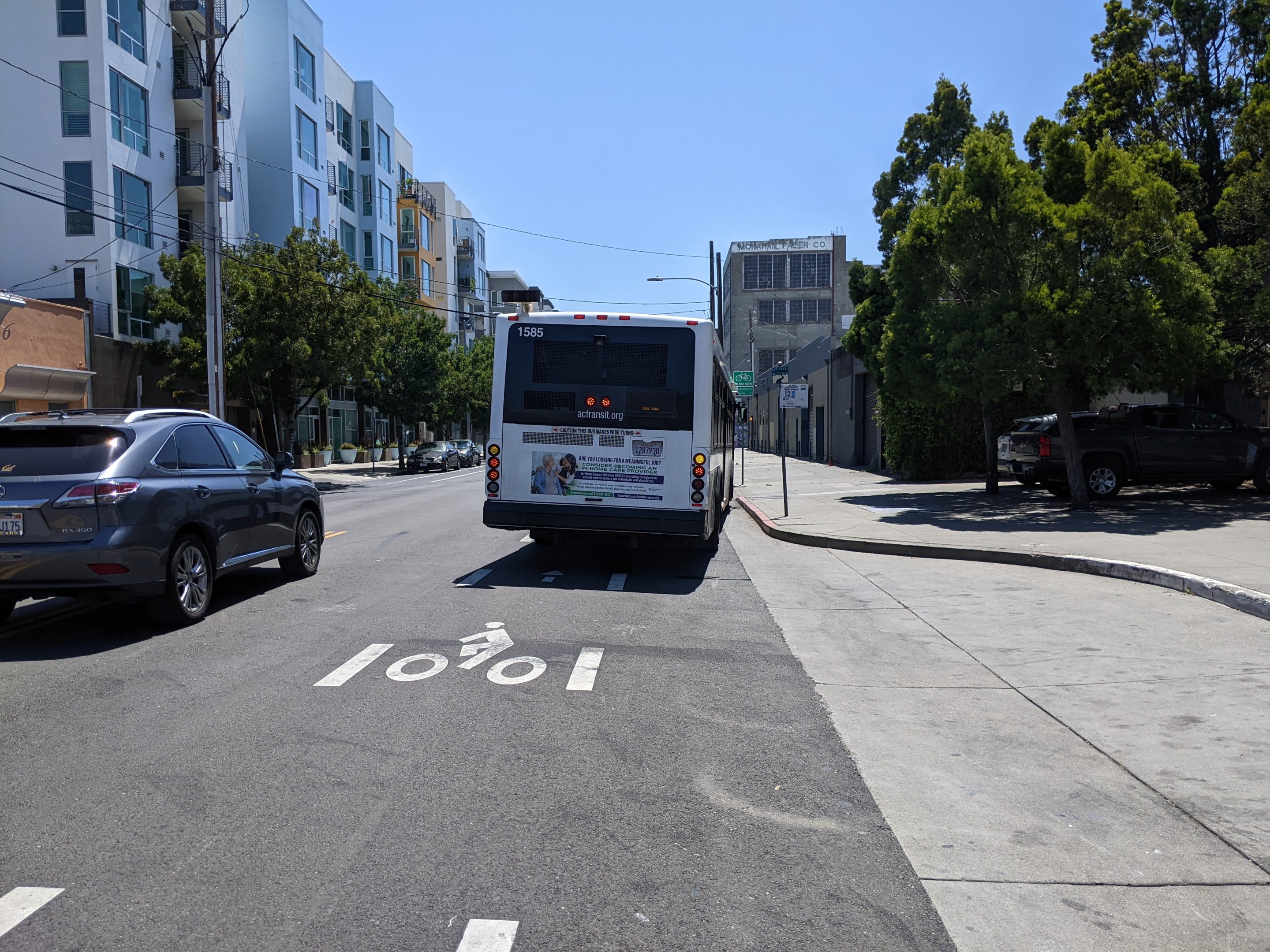Michael Hursh, head of AC Transit, denied that his agency has obstructed safety measures for pedestrians and cyclists in Oakland street projects in a 700-word post published Wednesday. This was in response to "OakDOT Killing Grand Avenue Road Diet at AC Transit’s Request," a Streetsblog story that ran the day before about an OakDOT decision to retain four vehicle-travel lanes on Grand instead of reducing the street to three.
From Hursh's post, responding to the accusation that his agency's request on Grand also led to planned protected bike lanes getting narrowed and cut back:
...our transit district has always maintained a supportive relationship with bicyclists. The City of Oakland made the unilateral decision to remove the two-way cycle track from the Plan's design. It is important to note that AC Transit did not request its removal and expressed a preference for its inclusion in the design.
AC Transit acknowledges that the two-way cycle track is more favorable for bicyclists and requires less consumption of the right-of-way, making it a desirable option. Despite this, the city made the ultimate choice to remove it from the project's plans.
He wrote that the Streetsblog story contained "unfounded and inaccurate information." The story is accurate, was confirmed by multiple sources, and it included a quote from an OakDOT planner responsible for the project saying that it was "AC Transit who strongly objected to the road diet. Based on this pushback, we added the fourth lane back."
It was this change, according to OakDOT staff, that necessitated the narrowing and partial cutting of bike facilities on the street.
It is true that OakDOT has ultimate control over the Grand Avenue project. And it may be true that AC Transit never specifically asked for bike lanes to be narrowed, but it is the direct result of their insistence on retaining all four motor-vehicle lanes.
That said, OakDOT staff could--and should--ignore the AC Transit request, go through with the road diet/lane reduction, and restore the full-width cycle track around the lake. If AC Transit develops a concrete plan for transit-only lanes in the future, those can come out of the space now dedicated to private car storage around the lake (also known as the parking lanes).
We call on @rideact and @OakDOT to work together on an interim plan that includes two car travel lanes, expanded pedestrian spaces, wide protected bikeways, and supports a future for dedicated bus lanes!
— Traffic Violence Rapid Response (@RapidRevolt) July 20, 2023
Together a safe and vibrant Grand will be our future#Oakland pic.twitter.com/Ye7XE5DF6O
It's also important to note this isn't the first time AC Transit requests and the agency's singular focus on bus speeds have resulted in less-safe projects: think of the Fruitvale Alive cycle track project, which will retain dangerous slip turns because of AC Transit demands. AC Transit was also involved in the installation of "beg buttons" in the cities in which it operates, which may speed up bus operations slightly, but delays the very passengers they're trying to serve the moment they alight.
Advocates put it well in the Tweet embedded above: OakDOT and AC Transit need to work together. And if Hursch doesn't like Streetsblog's reporting because it calls into question his agency's dedication to safety, then he can change the narrative by unequivocally supporting the road diet on Grand.





